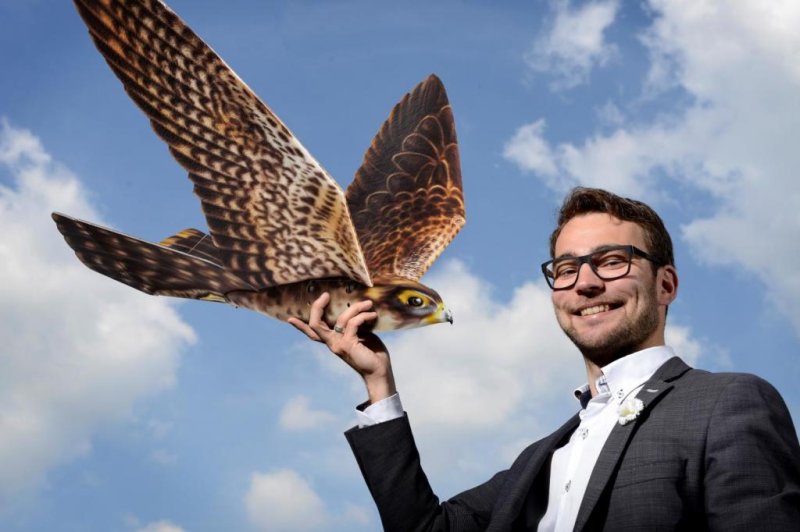TWENTE, Netherlands, April 13 (UPI) -- A life-like robotic falcon known as Robird is set to take to the skies surrounding Weeze Airport in Germany. Robird's mission is simple: scare birds away from Weeze's airspace.
The robotic bird was designed by a team of Dutch researchers just across the border at the University of Twente. The team spun their design into a company called Clear Flight Solutions.















